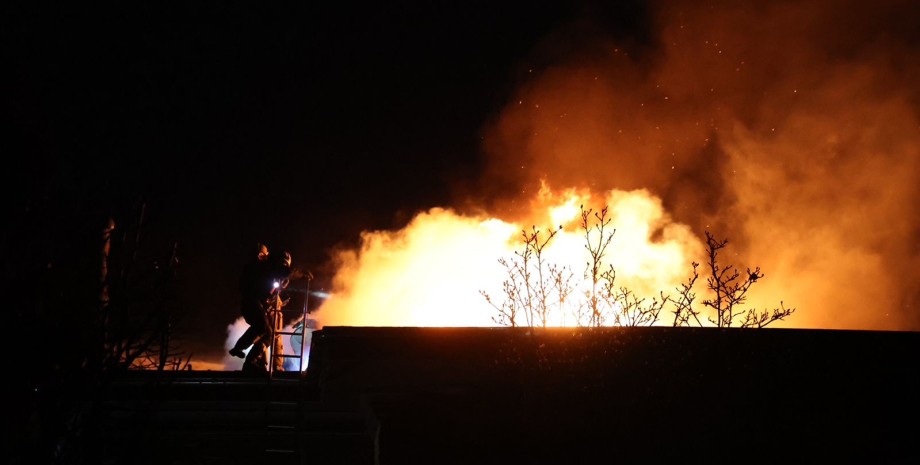
 By Natali Moss
By Natali Moss
On the night of November 21, the Russian Federation fired Ukraine. The Armed Forces of the Armed Forces reported that they recorded an intercontinental ballistic missile launched from the Astrakhan region in the sky. Under the blow was the city of Dnipro, two fires broke out and an industrial enterprise was injured. Mayor Boris Filatov declared damage to the building of the Center for Rehabilitation of Persons with Disabilities.
The explosions also raged in Poltava region, in a number of regions and Kiev, emergency shutdowns were introduced. On November 21, President Volodymyr Zelenskyy called Russia "a crazy neighbor" and announced the use of a new rocket by the enemy. "All characteristics are speed, height is intercontinental ballistic. Expertise is currently underway," he informed. The President said that Russian leader Vladimir Putin uses Ukraine as a landfill and "afraid when there is just a normal life near him.
" Defense Express emphasized that intercontinental ballistic missiles are designed to deliver weapons of mass damage. According to analysts, Russia has demonstrated its attack that could strike a nuclear stroke. Senior analyst of the Australian Institute for Strategic Policy, Malkommmmolm Davis, in a comment by CNN, suggested that launching an intercontinental ballistic missile is an attempt to force the event to refuse Ukraine support.
According to him, it is a signal against the backdrop of the first applications of ATACMS and Storm Shadow in Russia. "If it is really a signal to retreat and a hidden nuclear threat, then if we retreat, the Russians will do it again and again," the expert warned. The Russian Presidential spokesman Dmitry Peskov did not confirm the use of an intercontinental ballistic missile in Ukraine, sending journalists with this issue "to the military".
At the same time, he called the Storm Shadow rockets and accused the US of "oil saving into fire". On November 21, the official representative of the Ministry of Foreign Affairs of the Russian Federation Maria Zakharova accidentally demonstrated how the instructions "from above" are silent. During a briefing, she was called and ordered not to comment on "Ballistic missiles".
On November 20, several anonymous users spread a report on social networks about a probable blow to Ukraine with a new RC-26 Rubzh missile. It was reported that the start can take place from the Astrakhan region. The information was disseminated by the People's Deputy Borislav Bereza and the militarycor Andriy Tsaplienko. Russia planned to complete the development of PC-26 "Rubezh" by 2013-2015, to test and to set the complex on duty. But the plans have not been implemented.
In September 2011, the first start was held, and by 2015 the rocket was tested on several landfills. Defense Express conveyed that the exact characteristics of the Rubezh missile are unknown, as were the real development status. It probably weighs 40-50 tons and has a range of 6000 kilometers. The weapon can be equipped with four separate combat blocks of 0. 3 MT (as in PC-24 "Yar") and a hypersonic planning block type "Avangard".










All rights reserved IN-Ukraine.info - 2022